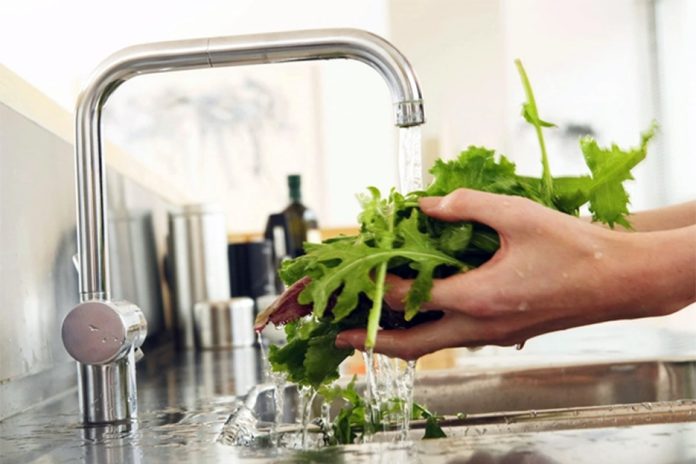Are Food Washes Worth It?
Produce washes you buy at a store are safe. But that doesn’t mean they are the best way to wash your produce. Distilled or cold, clean tap water does the trick just fine. Soak your fruits and veggies for a minute or two to lessen the chances of getting sick.
Poultry
We get it: Raw chicken is slimy when it comes out of the package, and you want to wash it off. But according to the USDA, it’s safer to destroy bacteria when you cook it. A recent study looked at people who washed raw poultry for a meal. Sixty percent had bacteria in their sink afterward, and 26% had transferred bacteria to their salad lettuce.
Prewashed Salads
If the bag says your greens have been pre-washed, there’s no need to send it through the salad spinner. Many prepared lettuces go through a triple wash system to remove natural debris.
Eggs
Right before a chicken lays an egg, a thin coating called a bloom covers the shell. This keeps bacteria out of its tiny pores. Commercial egg producers clean eggs in a way that keeps that layer intact. Washing eggs at home doesn’t remove germs; it lets them inside instead. Always keep your eggs in the refrigerator, and cook them thoroughly.
Red Meat
You can’t wash all the bacteria off red meat. Some is deep in the fibers. Any that come off will cross-contaminate your sink and everything in it. The safest way to kill all the bacteria on red meat is to cook it to an internal temperature of at least 145 degrees.
Mushrooms
On one hand, the USDA recommends that you wash any produce that doesn’t say “pre-washed” on the label. On the other, mushrooms are little sponges that suck up water — and maybe some bacteria with it. Clean your store-bought mushrooms with a damp cloth instead. If you gather mushrooms like morels in the wild, soak them in salted lukewarm water for 30 minutes. Then rinse with clean water until all the dirt is gone.
Fish
Fish is in the same category as poultry and red meat: If you wash it, you will spread bacteria around your kitchen. Cook it off instead. The only exceptions to this rule are clams, oysters, mussels, and scallops that you get fresh. They may need a rinse to get rid of sand and dirt.
Pasta
There’s no food safety reason to wash off your pasta, either before you cook it or afterward. Some people rinse pasta after it’s cooked to remove some of the starch, but this makes it harder for sauce to cling to the noodles.
Avocado
You don’t eat the peel of the avocado, so why should you wash it? Because when you slice it, you can transfer bacteria and dirt from the peel to the avocado.
Cantaloupe and Other Melons
Melons grow on the ground, so pests and microorganisms from dirt and fertilizer are all over them. Cantaloupe in particular has netted skin that traps bacteria. Wash all melons carefully right before you cut into them so you don’t move bacteria from the rind to the flesh.
Grains
Most of the grains you buy in the U.S. go through processing and are shelf-stable. There’s no safety-related reason to wash them. But some grains, like quinoa and farro, come out of the bag pretty dusty. If you want to rinse them, feel free.
Canned Drinks
Your call. If you’re worried about what might have touched the can before you put your lips on it, give the top of it a good wash. It’s OK to use soap in this case because cans aren’t porous.
Beans
Both dried and canned beans are safe without washing them. But you won’t hurt dried beans if you wash the dust off of them. And if you rinse canned beans, you can cut the amount of sodium by almost half, on average. For example, a can of undrained kidney beans has 327 milligrams of sodium. If you rinse and drain them, they have 164 milligrams.
Credit: webmd










